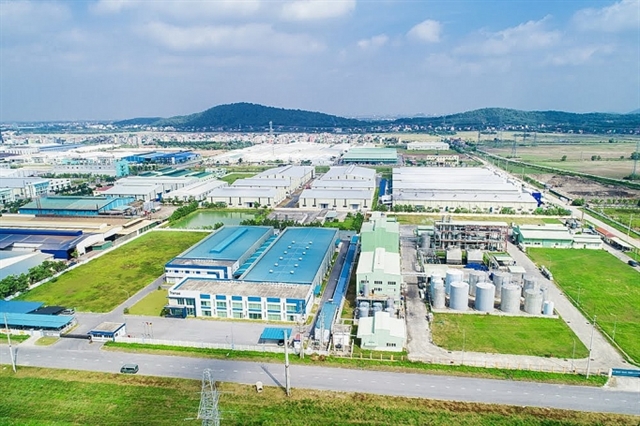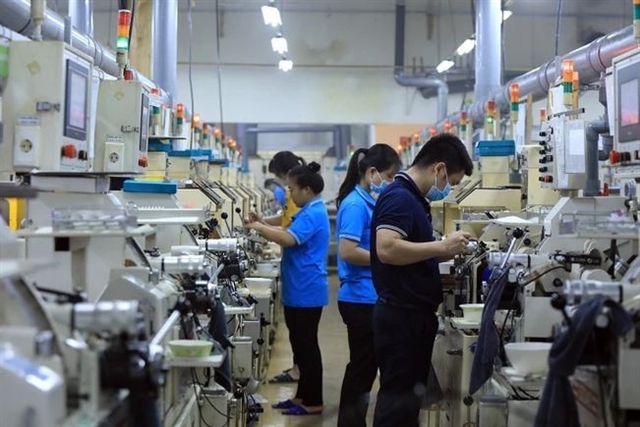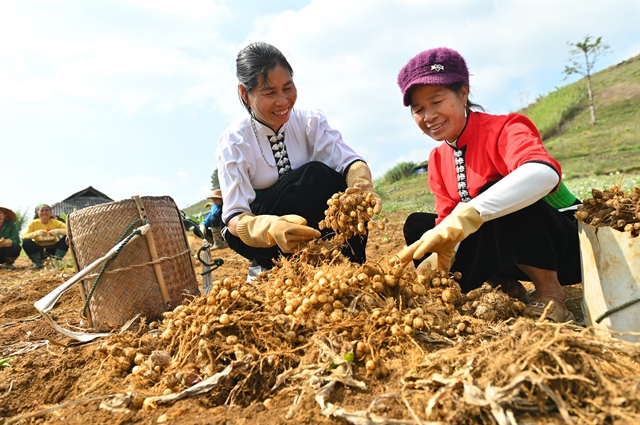 Society
Society
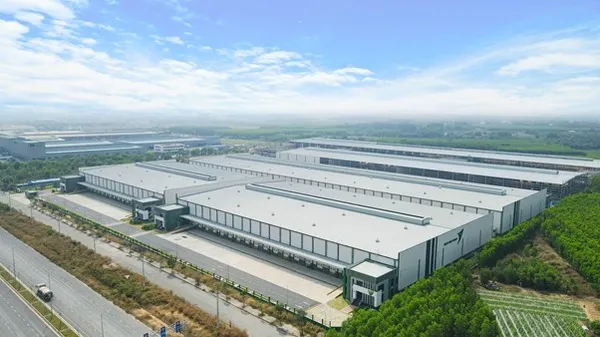
Recent torrential rains in many Cửu Long (Mekong) Delta provinces in what is the dry season have damaged crops, including fruit trees.
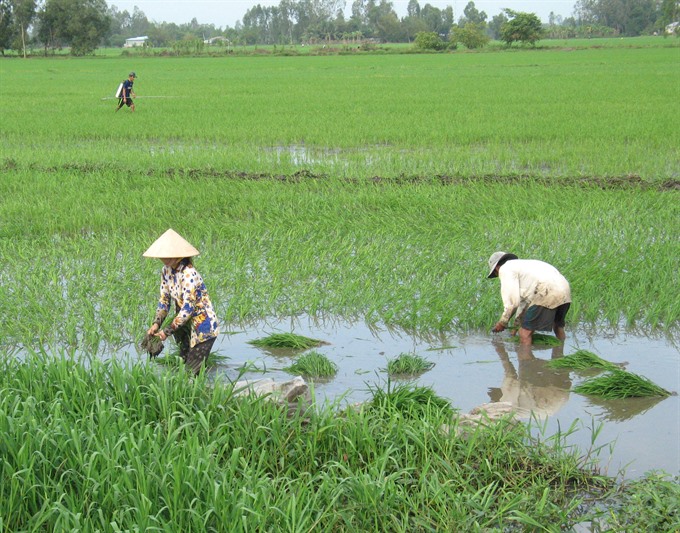 |
| Farmers work at a local field damaged by recent torrential rains in Hậu Giang Province’s Vị Trung Commune. — VNA/VNS Photo Duy Khương |
HCM CITY — Recent torrential rains in many Cửu Long (Mekong) Delta provinces in what is the dry season have damaged crops, including fruit trees.
In Hậu Giang Province, heavy rains on February 2 inundated a large area of paddy that was close to harvest time in Châu Thành A and Vị Thủy districts, forcing their owners to spend large sums of money pumping the water out.
More than 2,400ha of ripening winter-spring rice crop in Cần Thơ city were damaged.
In some areas where farmers had started their harvest, the rains caused difficulties for them in reaping and drying the paddy.
Trần Văn Ân, deputy chairman of Phước Long District in Bạc Liêu Province, said the rains have damaged 1,000ha out of 9,000ha of rice in his locality, affecting productivity and quality.
The rains also caused heavy losses to salt producers in Bạc Liêu, the largest producer in the delta.
Nguyễn Hoàng Thưa, deputy chairman of the Salt Production Co-operative in Doanh Điền hamlet, said, “We could not harvest our salt because there has been a lot of rain since the beginning of the season."
Usually the salt harvest would have been completed a month ago, but the unseasonable rains have put paid to that this year, he said.
Salt prices are up almost 250 per cent from a year ago, but producers do not have stocks to sell.
Nguyễn Văn Tranh, deputy director of the Cà Mau Province Department of Agriculture and Rural Development, said nearly 3,400ha of paddy ready for harvest were damaged by the rains.
Green bean growers in the province’s Khánh Bình Tây Commune have also suffered heavy losses since the young trees were extremely vulnerable to water, Đoàn Chí Tâm, chairman of the commune People’s Committee, said.
Fruit growers in Tiền Giang, Vĩnh Long, Bến Tre, Hậu Giang, Cần Thơ and other localities are also suffering because of the downpours.
Many mango, rambutan and durian gardens are flowering, but the heavy rains have caused the flowers to shed, affecting output, according to fruit growers.
Lê Thanh Hải, deputy general director of the National Centre for Hydro-meteorological Forecasting, said the rains were caused by a strong equatorial convergence zone, with the heaviest rainfall occurring on February 2.
Lê Thị Xuân Lan, a meteorologist, said unseasonable rains alternating with sunny weather would continue to occur in the south, but this would gradually end by the end of this month.
The dry season would then last from March until the end of April, she said. Last year the dry season had lasted a whole six months.
However, rainfall this year could be lower than the average of the last several years, and the Mekong River is expected to be 15-30 per cent lower than the average flow of several years, equivalent to the dry season of 2014–15 and a bit higher than last year.
Saltwater could intrude into the region earlier and last longer than in previous years, though the severity will not match the drought of 2015–16.
Mekong provinces have begun to take measures to counteract the drought and salinity. — VNS

